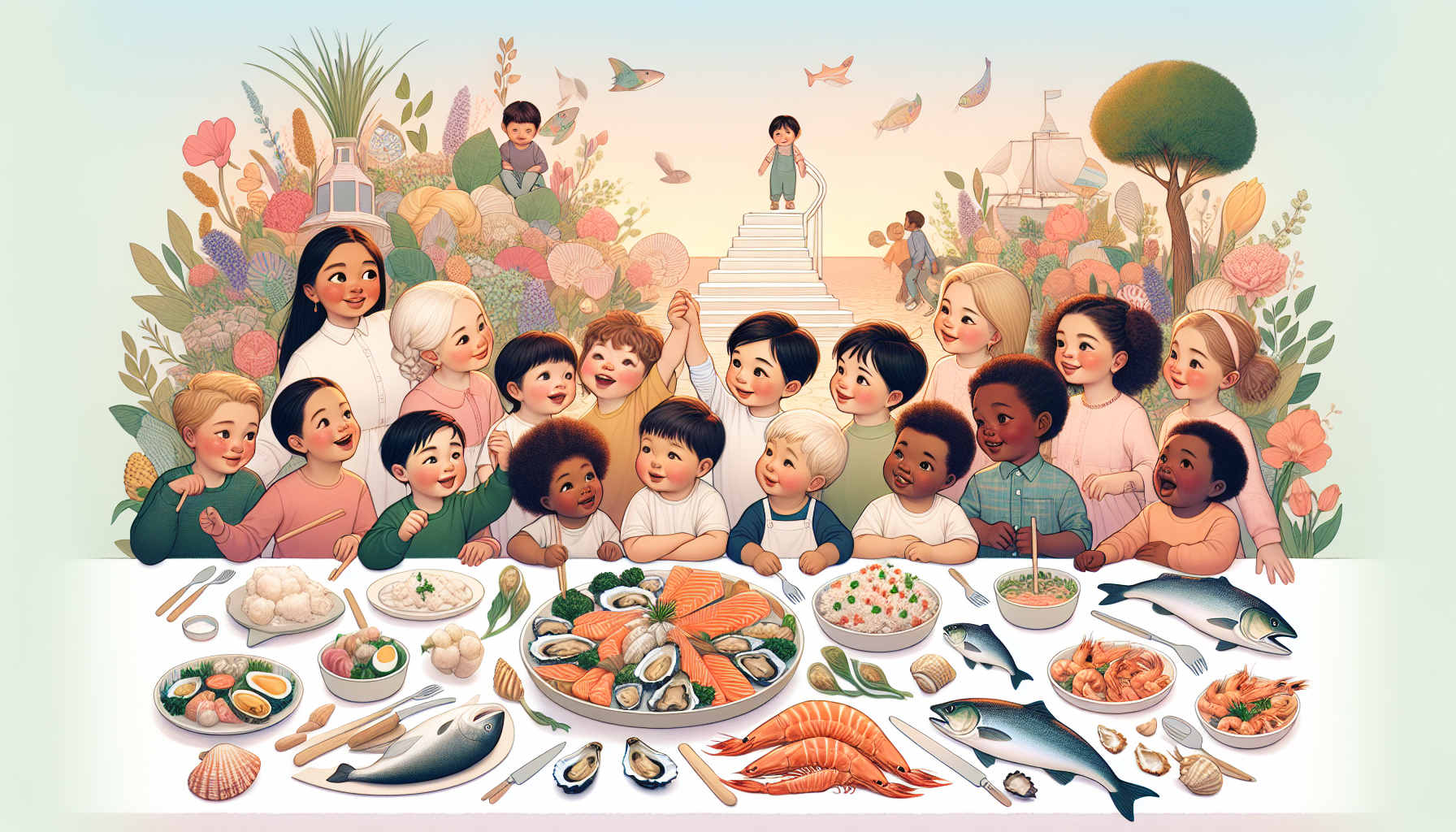The Surprising Benefits of Seafood on Children's Social Skills
Children who regularly consume seafood are more likely to develop impressive social skills. Intrigued? Dive into this fascinating topic to explore how the humble seafood on your dinner table could be nurturing a kinder and more cooperative generation.
Why Seafood is a Social Skills Champion
Does your child willingly share their toys? Do they empathize with peers and show kindness? Research from the University of Bristol suggests that adding seafood to their weekly meals might enhance these desirable traits. A study published in the European Journal of Nutrition analyzed data from over 8,300 children and found compelling connections between seafood consumption and social behaviors. Children who consumed seafood, like mackerel, salmon, shrimp, and seaweed, at least twice a week, were noted to display better pro-social behaviors. Let's break this down into how these nutrients work.
The Essential Role of Omega-3 Fatty Acids
At the core of this phenomenon is omega-3 fatty acids, particularly DHA and EPA, found abundantly in fatty fish. These components are vital for brain health, playing roles in both the structural and functional aspects of brain cells. Omega-3s contribute to gene expression and cell membrane flexibility, essential for cognitive processes and social interactions. Imagine these fatty acids as the "oil" that keeps the brain's machinery running smoothly, enhancing its capacity to understand complex social cues and respond empathetically.
More than Just Omega-3: A Nutrient Symphony
While omega-3s steal the spotlight, other nutrients in seafood play supporting roles. Iodine, vital for producing thyroid hormones, supports brain development and function. Meanwhile, selenium found in crustaceans like oysters and crabs, acts as an antioxidant and aids protein production necessary for DNA synthesis. Then there's choline, a nutrient involved in the creation of acetylcholine, a neurotransmitter that affects memory and cognition. Each nutrient contributes uniquely, creating a symphony that supports a child's overall social and cognitive development.
Seafood and Its Limited Impact on IQ
Interestingly, while seafood consumption clearly influences social behavior, its effect on a child's Intelligence Quotient (IQ) seems less significant. The study found no strong link between seafood intake and higher IQ scores. It highlights an important point: social intelligence is distinct from cognitive intelligence. We often emphasize IQ in educational settings, yet social and emotional intelligence may be equally essential for adapting and thriving in our complex world.
The Magic Formula: Quality and Quantity
So, how much seafood should our children eat? The study recommends about 190 grams weekly, equivalent to roughly two servings. This amount appears optimal, fostering improvements in social behavior without any noted adverse effects. Too much of anything isn't ideal, and moderation ensures our children reap the benefits without potential risks. Including a variety of seafood ensures exposure to a broad spectrum of nutrients, contributing to well-rounded health and development.
Personal Views and Takeaways
Reflecting on the research, it's heartening to see scientific backing for ancient wisdom—nature provides the best nourishment. Incorporating seafood into children's diets doesn't just benefit their physical health; it molds their social fabric, embedding empathy and cooperation. While seafood won't solve every social challenge, it can be a valued ally for parents aiming to nurture well-rounded, socially capable children. Next time you plate a meal, consider the hidden social boon nestled within those fish fillets.
In Conclusion: Your Child's Path to Empathy
Raising a generation that values empathy and cooperation is crucial in today's interconnected world. Seafood offers a delicious and nutritious path to help achieve this. As parents, caregivers, or educators, consider this compelling evidence when planning meals. Could today's dinner decision shape tomorrow's peacemakers? How powerful is the plate before us in shaping more socially adept individuals?
By providing a balanced diet rich in essential nutrients like those found in seafood, we take a step toward crafting a better future—one meal at a time. Whether you're a seasoned seafood lover or just dipping your toes into the fishy waters, the potential benefits for your child make it a pursuit worth exploring. Make meal times count, and watch as your child's social prowess sails to new heights.

